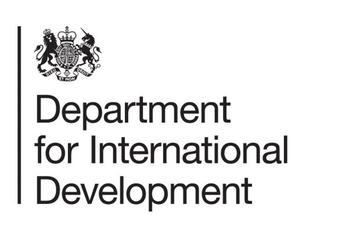Workshop on Harnessing Digital and Frontier Technologies for International Development Held by the Centre for Technology and Global Affairs and DFID
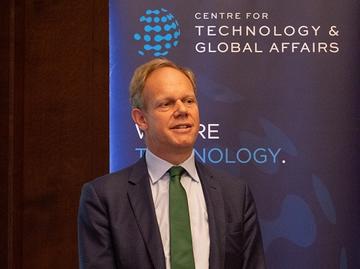
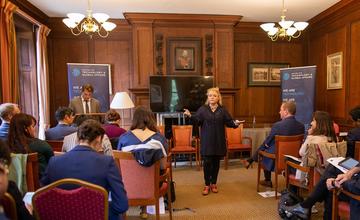
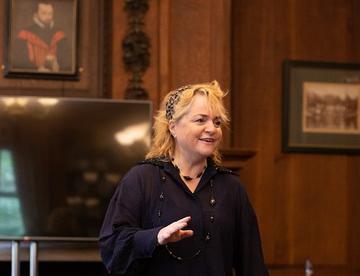
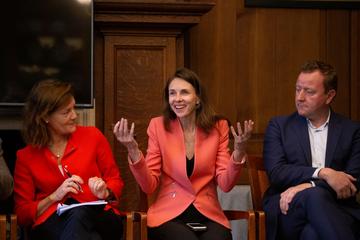


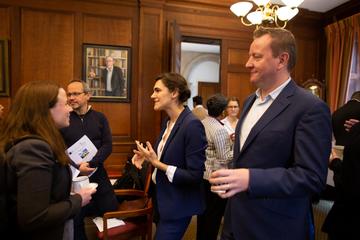

On June 14 2019, Oxford University’s Centre for Technology and Global Affairs convened the Workshop on Harnessing Digital and Frontier Technologies for International Development in collaboration with the UK’s Department for International Development (DFID).
Digital and frontier technologies are critical enablers of development. They offer tools that the global community can use to speed up delivery of the United Nations’ Sustainable Development Goals (SDGs) at scale. Collaboration across sectors is a necessary condition to harness this potential for a step-wise improvement in international development efforts but also for responding to the possible risks presented by technological innovation.
The workshop provided a forum to exchange views and the latest evidence-based research on the international development agenda, especially as it relates to technological change. Over 50 participants from various United Nations agencies, international non-governmental organizations, private corporations, and universities met to share insights in this vital area of global policy.
The workshop was opened by the Centre’s Director, Prof. Lucas Kello and by Prof. Kalypso Nicolaïdis, who introduced the Centre’s new initiative on Global PeaceTech.
The Permanent Secretary of DFID, Matthew Rycroft CBE, delivered the keynote speech of the workshop. He stated that smarter and more widespread use of digital and other frontier technologies is a vital feature of policy efforts in international development. Specifically, he highlighted the role of these technologies in tackling global poverty and in accelerating progress towards meeting the SDGs. He also stressed that DFID is putting data and digital technology at the heart of its new strategic direction. Following is an excerpt of Mr. Rycroft's speech:
We need to be live to the fact that the 4th Industrial Revolution is changing the whole world and we will need to understand the opportunities and challenges that are coming our way. Frontier technologies will continue to substantially change the cost and access to products and services, how we gather information, make products, and interact. They are expanding access to global markets and changing business models. This will be especially true for data-intensive technologies like Artificial Intelligence and the Internet of Things. Advancements in digital technology, such as faster, more affordable connectivity and better data storage, allows for these frontier technologies to be used much more widely.
Therefore, citizens in developing countries will be living and working in economies and societies that will dramatically change in a short period of time, or may need support to transform otherwise they will be left behind. So, it’s paramount that the international community stays ahead of the curve if it is to provide meaningful support to developing countries.
We know that an increasingly digital and data driven world has the potential to rapidly lift people out of poverty, but it can also amplify and worsen existing inequalities and exclusion dynamics. We have already seen this in countries where the poorest in society are often locked out of the benefits associated with these innovations. Certain constituencies of women, the disabled, the elderly, rural populations and the poorest are among those most at risk of being left behind. Unless the international community is proactive in addressing these challenges, the world will not be positioned to eradicate extreme poverty by 2030.
Alongside the tremendous opportunities offered by advances in digital and frontier technologies, there are also risks that need to be managed to ensure individuals have their rights and safety protected. Ensuring appropriate policies and regulations are in place to manage online privacy, security, safeguarding and censorship are paramount for the safe and secure use of technological innovation. We know, from our own experience in the UK, that a robust policy and regulatory environment is required.
Critically, technological innovations have already provided huge economic dividends, as they have lowered the cost of production, exchange and networking activities in countries. Yet, if countries are not well positioned to leverage the benefits of these transformations, they may find that their pathways to prosperity are diverted or constrained. The international community should do more to support countries to establish, and work towards, their vision of technological transformation. In doing so, identifying the types of locally-adapted technologies that can help solve their problems and deliver results at scale.
Mr Rycroft’s speech was followed by a panel discussion on policy challenges in international development. Workshop participants then contributed to a broader discussion focusing on two key topics: use of digital and other frontier technologies to achieve the SDGs; and technology, migration, and humanitarian responses.
Participants discussed the latest research and case studies on how new technology is being employed for developmental purposes and shared reflections on the policy action required to deliver inclusive and responsible outcomes.
Kluz Ventures is a private investment firm passionate about new technologies, investing through a family of sector-specific funds in sectors that will revolutionize our world and drive future growth. Learn more at www.kluzventures.com.

UK Department for International Development
